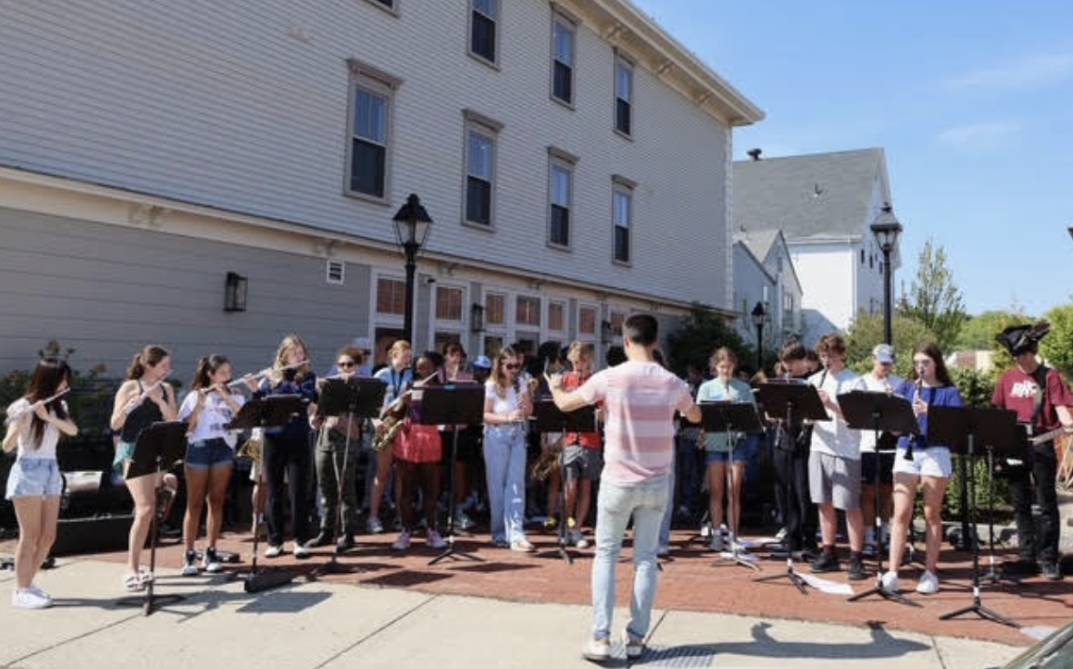Amy Coney Barrett Confirmed to Supreme Court by Slim Margin
After an extremely controversial nomination process, Amy Coney Barrett was confirmed to the Supreme Court on October 27, 2020, by a slim margin of 52 to 48. Justice Barrett’s political ideology starkly contrasts that of her predecessor, the late Justice Ruth Bader Ginsburg.
November 1, 2020
On October 26, 2020, Amy Coney Barrett was officially confirmed to the Supreme Court by a vote of the United States Senate.
Although the White House reported that Judge Barrett was confirmed to the Supreme Court “following a unanimous vote,” Barrett was confirmed by a slim Senate majority of 52 to 48 and a mere four votes. The Senate Judiciary Committee’s unanimous vote to advance the nomination to the full Senate occurred last week with the Committee’s Democratic senators boycotting the vote.
Following the Senate vote, Chief Justice John G. Roberts, Jr., administered the Judicial Oath to Amy Coney Barrett, who became the 103rd Associate Justice of the Supreme Court, in a private ceremony on October 27, 2020.
Aside from Senator Angus King, the independent representing Maine, all those who voted “Nay” were Democratic Senators. On the other hand, all those who voted “Yea” were Republican Senators. The partisan vote reflected the divided nature of both the nation’s lawmakers and its citizens alike.
Shortly before the confirmation vote, Senator Maggie Hassan, who planned to vote against the nomination, stated, “In nominating Amy Coney Barrett to the Supreme Court, Republicans are trying to do through the Courts what they’ve [been] trying to do legislatively for years; repeal the Affordable Care Act.”
The Democratic Senator from New Hampshire elaborated, “With the Trump Administration-backed lawsuit against the Affordable Care Act coming to the Supreme Court on November 10th, Amy Coney Barrett could be the deciding vote on whether or not millions of Americans keep their health coverage,” concluding, “Plain and simple, protections for pre-existing conditions would be put at risk if Amy Coney Barrett is confirmed to the Supreme Court.” With Justice Barrett officially confirmed, these concerns are now a reality.
On the other hand, Senator Rick Scott, the Republican Senator from Florida, spoke of the Democrat’s boycott of the vote to advance Justice Barrett’s nomination, “I am very disappointed that the Democrats don’t want to fulfill their Constitutional duty of an advise of consent but maybe that will mean we will confirm Judge Barrett even faster.”
Further, while affirming his support for Judge Barrett’s nomination, Senator Scott indicated of the 407 judges he confirmed, the most important thing was that “these judges understood that they were part of the judiciary [branch], not part of the executive branch, not part of the legislative branch.” He assured that “[the judges] were going to interpret the law, not make the law, and that’s clearly what Judge Amy Coney Barrett believes in.”
However, Democratic Senator Chris Coons from Delaware disputed this, stating, “During the confirmation hearings for Judge Amy Coney Barrett, I’ve been raising the ‘Affordable Care Act’ in Healthcare… because President Trump and the Republican majority have tried over and over to repeal it, and President Trump said he would only nominate someone who was committed to overturning the ‘Affordable Care Act.’”
Jennifer Epps-Addison, the President and Co-Executive Director of the Center for Popular Democracy, pointed out, “75% of Americans believe that the Senate should be discussing COVID relief right now, not a Supreme Court nomination, and here in California where tens of thousands are at risk of eviction, where folks are struggling with their health care, literally millions of people are now unemployed due to COVID, we know more than anyone else in the country that what the Senate needs to do is pass the Heroes Act and pass relief for our families, not help President Trump make a massive power grab.” She optimistically observed, “Folks are out making their voices heard out here in California… and in DC.”
Massachusetts Senator Elizabeth Warren, a Democrat, strongly opposed Barrett’s nomination and confirmation. The senator delivered a floor speech stating, “Just 8 days—8 days— before the election when tens of millions of Americans have already cast their ballots, and just days before the Supreme Court will hear a case that could overturn the Affordable Care Act, Donald Trump, Mitch McConnell, and their Republican buddies are shoving aside the wishes of the American people to steal this Supreme Court seat.”
Warren continued, “Here’s the ugly truth: Donald Trump and his Republican buddies know that confirming Amy Coney Barrett to the nation’s highest court is their path to advance an extremist agenda, long after the country is fed up and disgusted with their failures.” Especially “in the middle of an election, in the depths of a pandemic, their extremist agenda is all that matters, and that’s why they are so desperate to ram her nomination through the Senate.”
Hingham High junior Ashley Jewell called the confirmation “upsetting.” She explained, “[Ruth Bader Ginsburg’s] dying wish was that her spot was would be filled by the next president, presumably not Trump,” and that it was disappointing it could not be fulfilled.
Jewell also highlighted the Republicans’ hypocrisy, explaining, “[towards the end of Barack Obama’s time in office] he nominated Merrick Garland to fill Justice Antonin Scalia’s position, [which was] voiced by the Senate majority leader Mitch McConnell [who claimed] that the next Supreme Court Justice leader should be chosen by the next president.” However, “While Obama’s [nomination] was almost a year from when the next president would take office, Trump’s [nomination] after RBG’s passing was less than a month from elections.”
Junior John Phillips stressed the most alarming aspects of Barrett’s confirmation, emphasizing, “One of the most alarming possibilities… would be that she continues her pattern of making rulings based on her religious morals, which should have no intrinsic connection to law or policy.” He further emphasized, “Amy Coney Barrett represents the possibility of a reversal of the gay marriage ruling and abortion ruling, which on top of the almost guaranteed repeal of [the Affordable Care Act] threatens to plunge the U. S. back into the 20th century.”
Another student, who wishes to remain anonymous, simply stated, “I am sorely disappointed [by Barrett’s appointment], and I dislike [Barrett] as a candidate.”

































